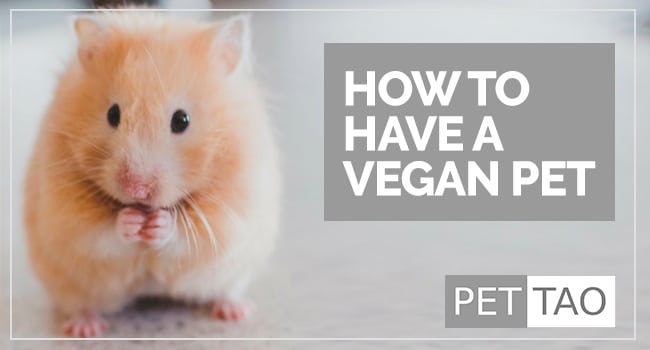Is it easy to have a vegan pet? What are the pros and cons? As more and more people have already converted to being vegan, does this mean it’s safe for pets too?
In America, we are “pet parents” instead of “people who own cats and dogs.”
As this trend grows, the number of pets fed a vegetarian or vegan diet grows.
Why Are Pets Missing Meat?
Vegetarianism for pets is the norm in some cultures. In India, 50% of people are vegetarian.
Half of the population which chooses to eliminate meat from their diet also choose to eliminate it from the diet for cats and dogs.
Again, dogs do not avoid meat because of their own personal preference.
Many owners have beliefs about their pet’s specific “needs.”
Your cat needs a certain flavor or they won’t eat.
Your dog needs to avoid a certain protein for allergies.
Your dog needs to avoid a certain protein for weight loss.
You have many educated guesses about pet food.
The number one reason people feed their dogs vegan and vegetarian foods is to align their household’s eating habits with their own ethics.
Veterinarians have heard it all.
Vegetarians have said it all.
Do you base your eating habits on your ethics?
You decide.
What Are Vegan Pets Missing?
It is not common for a cat to live as a vegan or vegetarian. It is close to impossible, but it is possible. The reason is cats require amino acids from animals.
They are called essential amino acids because cats cannot make them.
Providing these amino acids in synthetic form is sometimes sufficient – but not always.
These essential nutrients include:
- Preformed vitamin A
- Arachidonic acid
- Taurine
- Methionine
- Cysteine
If not supplemented, these nutrients will be missing from the feline diet, causing more trouble than you can imagine.
Most commercial vegetarian and vegan cat foods contain these nutrients, but the absence of side effects isn’t guaranteed.
You may elect to self-formulate an alternative diet for your cat.
Vegetarian and vegan owners give these alternative protein sources to their cats and dogs:
- Mycoprotein
- Soy
- Eggs (little to no taurine)
- Dairy protein
- Legumes
- Beans
- Vegetarian commercial foods: Natural Balance, Nature’s Recipe
- Vegan commercial foods: Wysong, Halo, Vegecat, Evolution, Ami Foods.
You may have heard eggs are called the perfect protein because they contain every essential amino acid a person needs.
Yes, eggs are good for pets too.
But they aren’t enough.
Thinking a protein substitute is enough is where troubles begin- especially for felines.
Egg protein may suffice as an additive to a canine diet, but cats can die with insufficient taurine. Eggs do not contain taurine.
Meat-Free Mondays Take a Turn for The Worse
Here are potential complications of feeding a vegetarian/vegan diet:
- Dermatosis caused by zinc deficiency
- High phytate from plant sources can cause a reduced nutrient absorption
- High fiber from plant sources can cause a reduced nutrient absorption
- Poor coat and skin (essential fatty acids will not be absorbed when there are too many fibers)
- Arachidonic acid deficiency causes fertility, skin, and coat issues in cats
- Cardiomyopathy as a result of taurine deficiency in cats
- Retinal degeneration as a result of taurine deficiency in cats
- Nutrient deficiencies in general for growing kittens and puppies cause growth retardation
- Fluctuating/unmanageable vitamin/mineral/nutrient levels
It is important to realize there have not been long-term studies in dogs to determine if vegetarianism is safe. You may realize this and still feed non-animal products because you feel feeding animal products is wrong.
You have the right to do so.
Owners report ingredients used in vegetarian pet diets are difficult for their companions to digest.
Why does this matter and how does this affect your cat or dog?
For those who decide to feed your pets in a vegetarian/vegan manner, how do you know the correct amounts of vitamins, minerals, fiber, and other nutrients to give?
Well, there is no easy answer.
This is most likely because so many species did not evolve as vegetarians, so veterinarians aren’t used to seeing pets thrive on eliminatory diets.
Why do pets need to eat as their ancestors did?
Well, maybe they do not!
We can only consider data and stories about animals who suffered from each of the conditions listed above.
They were uncomfortable.
They suffered from a preventable condition.
What Is a Simple Solution for The Vegan Pet Dilemma?
How can you keep healthy animals and still keep your belief system healthy?
Get a vegan pet! That is a pet that doesn’t eat any animal products. There are more than you think!
It’s such an easy solution!
Perfect pets for vegans include:
- Mice
- Gerbils
- Hamsters
- Guinea Pigs
- Turtles
- Horses
- Donkeys
- Potbelly pigs
- Goats
So, instead of adopting a cat or dog, consider a unique species to line up precisely with your ideals.
Embrace the alternatives to harsh symptoms of nutrient deficiencies.
Choose a pet that’s already vegan.
It’s common sense!
Interested in Learning a New Way to Feed Your Dog or Cat? Visit our Slow Cooker Recipes!








